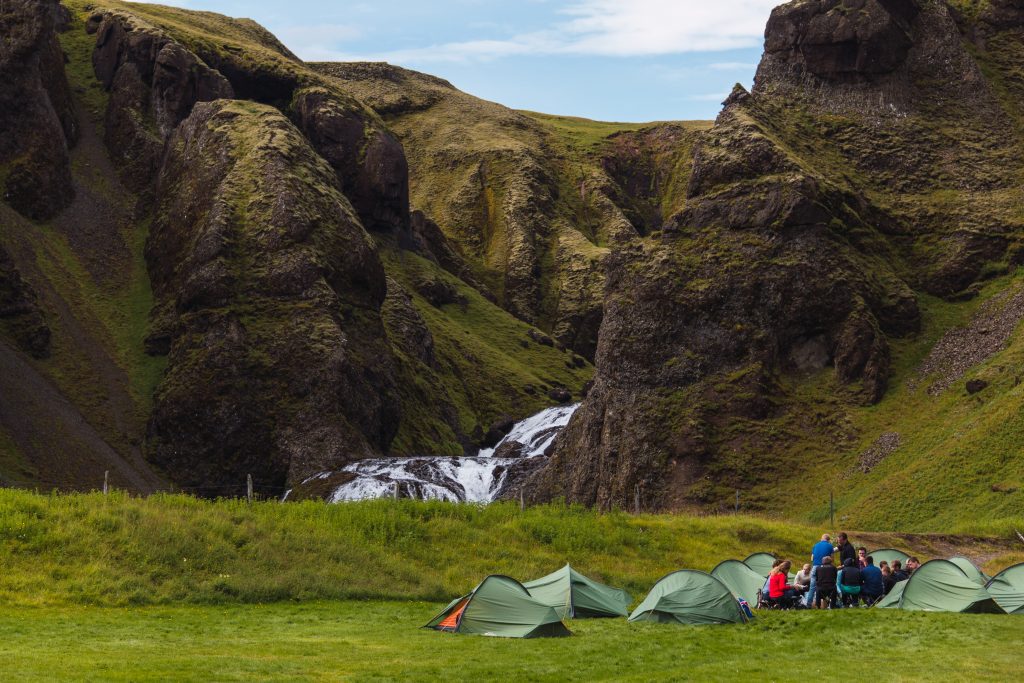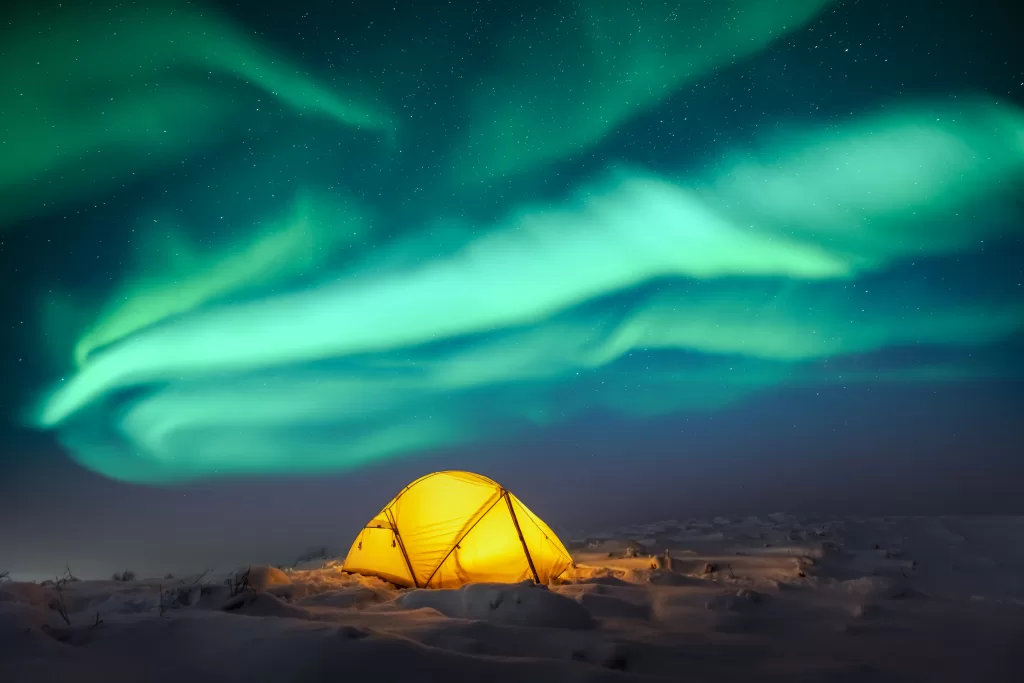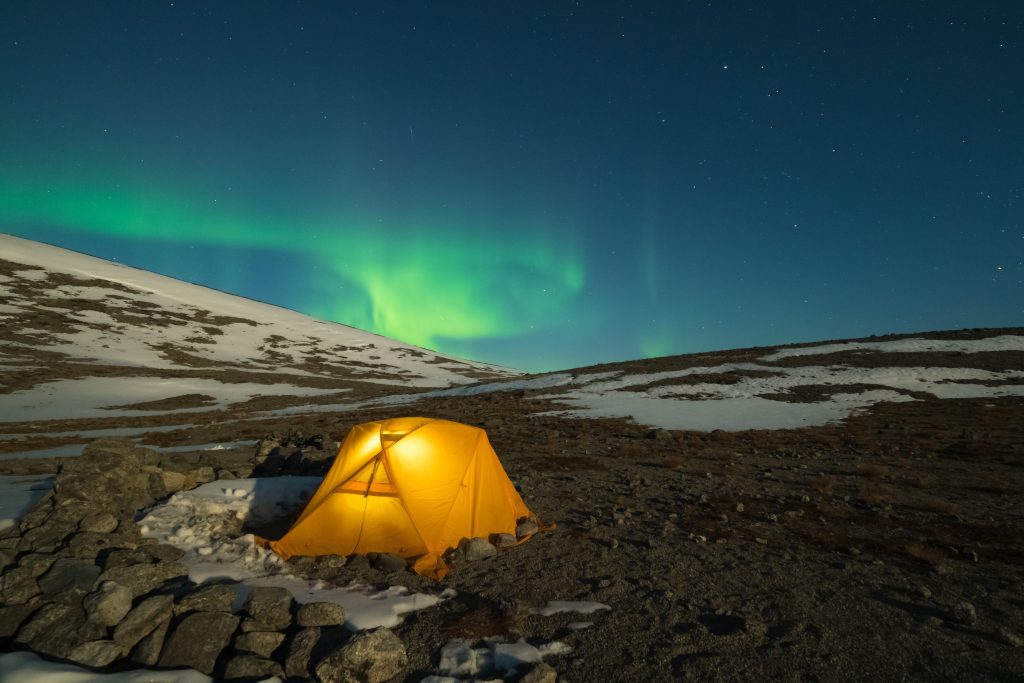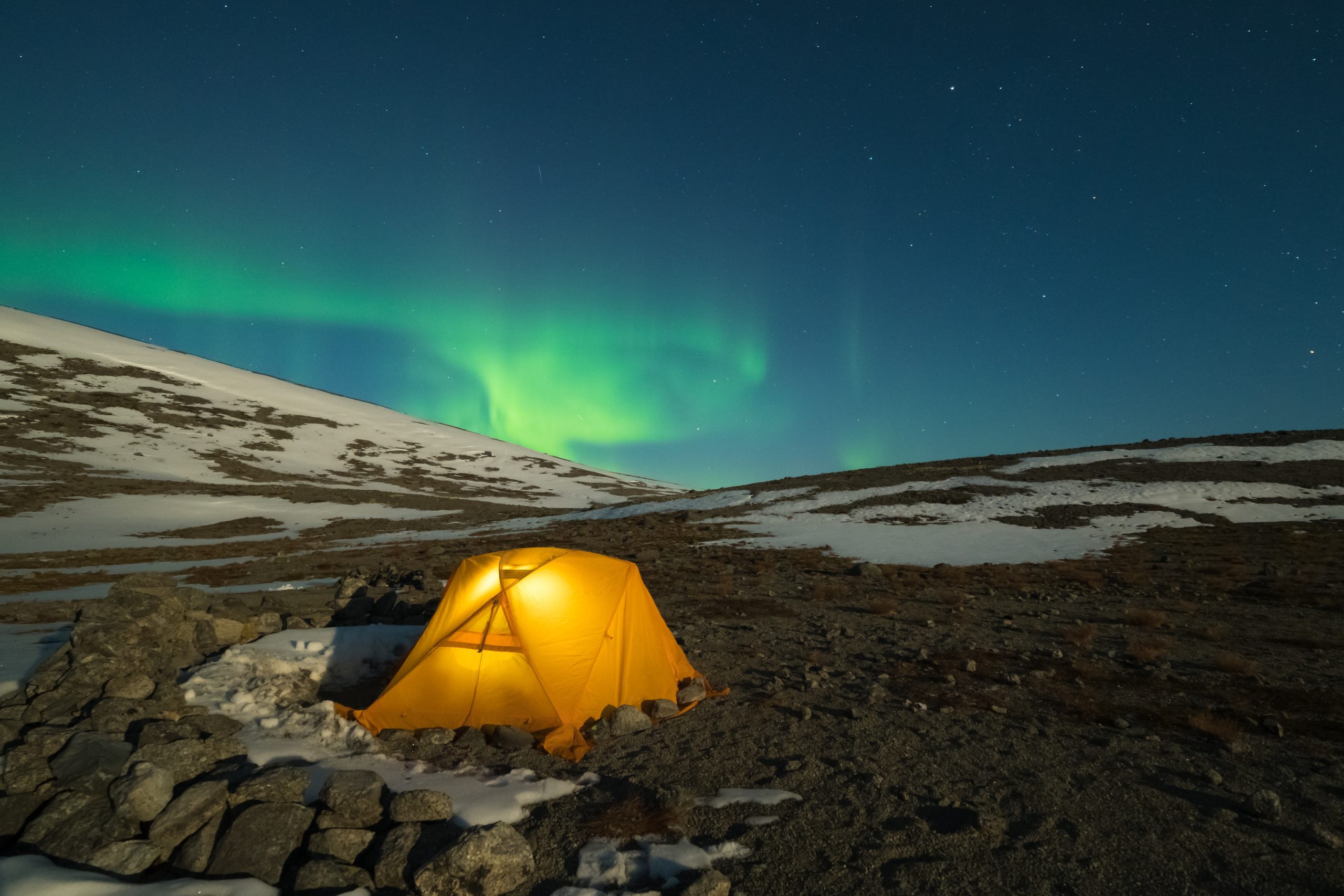Camping in Iceland offers a remarkable sense of freedom, but without adequate preparation or in the face of unfavorable weather, you risk jeopardizing your trip’s enjoyment.
- Camping in Iceland is heavily weather dependent and due to the cold climate, this is not the place to try camping for the first time.
- Even in the summer you should use a 3-season tent. You will need a strong tent that can withstand wind gusts. We recommend bringing extra pegs to secure your tent properly and make sure you have all the parts of the tent with you. If trekking, share a tent with your friend so you can share the weight load between your packs.
- It is tempting to camp anywhere in Iceland next to the beautiful nature but wild camping in Iceland is not permitted.
- Camping in a tent or a motorhome/camper van is restricted to campsites or privately owned land with the landowner’s permission. The only exception is camping in a tent in uncultivated land for one night if there is no campsite in the vicinity and you are biking/hiking.
- Practice using all your equipment before you arrive in Iceland. An unfamiliar tent can be difficult to set up in weather that you are not familiar with. It is important that you do not skip out on any of the recommended equipment for camping in Iceland.
- Keep in mind that you may have to modify your current camping set up to accommodate for differences. For example, hammock camping is nearly impossible as there are few trees in Iceland.
Camping in summer
Summer is the most accessible camping season but keep the following in mind:

- Summer in Iceland does not necessarily mean pleasant weather, rain is quite common in summer and sometimes it even snows. Strong winds are common all year round.
- With almost 24 hours of daylight in summer is it s clever idea to bring a sleeping mask to ensure a proper night’s rest.
- Campfires are prohibited in Iceland.
Camping in winter
Winter presents its own unique challenges for camping, but with proper considerations, it can be an extraordinary experience. Here are some key points to keep in mind:

- Due to the lack of sunlight and it being almost dark all day it is important to bring a headlamp and extra batteries.
- You will need a tent that can withstand intense winds and snow (ideal a 4-season tent), extra pegs and poles.
- Good to bring a sleeping bag with comfort temperature of -10°C (14°F), a sleeping pad with R-Value of at least 5 to properly isolate from the cold ground and a white gasoline stove as they are much more efficient in cold temperatures than canister stoves. White gasoline is not sold everywhere – give yourself time to buy it in advance.
- Make sure to familiar yourself with your stove before travelling.
- Keep in mind that anything left outside the tent (boots, food, etc) will freeze.
- Leave a travel plan here, and a have a backup plan with contact info for guesthouses/hotels along your route in case the weather becomes hazardous.
Camping in the highlands
Camping in the highlands is an adventure unlike any other, but it requires careful planning and preparation. Consider the following aspects when venturing into the highlands:

- The HIGHLANDS provide a more challenging camping environment.
- The weather can be much more unpredictable in the highlands and emergency services are much farther away.
- The rescue team’s highland patrol is only on duty during the summertime; in other seasons you are completely on your own.
- Please notice when camping in national parks or nature reserves, you must camp only in designated campsites. This applies for example to Hornstrandir and along the Laugavegur trail.
- When hiking multi day trips it’s a good rule to aim for camping in designated campgrounds, even though the hike is not within a protected area, to minimize negative impacts to the nature.
- During wintertime all mountain huts (except for Landmannalaugar sometimes) are locked and unmanned.
